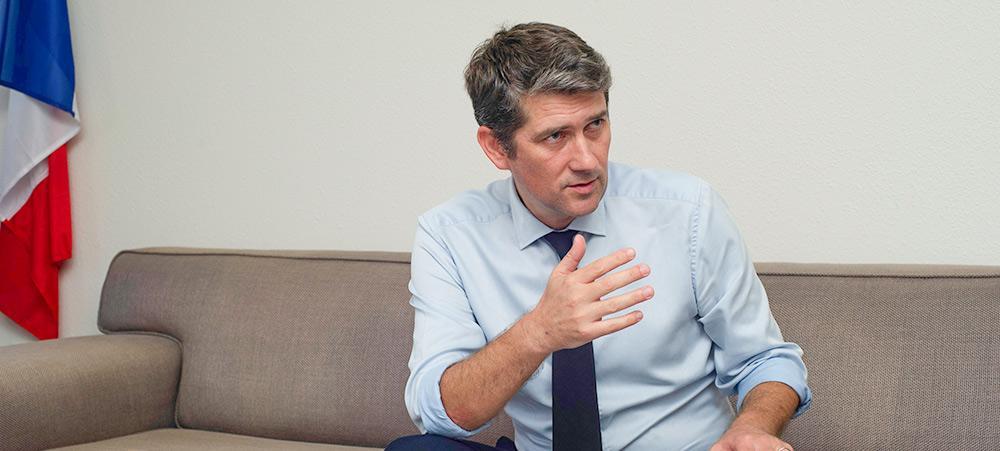"Anchoring New Caledonia in the Regional Dynamic"
23 November 2020

Dedicated in particular to the implementation of New Caledonia's regional policy, the Regional Cooperation and External Relations Department is placed under the authority of the President of the Government, Thierry Santa, who wishes to strengthen New Caledonia's integration in the Pacific. François Behue, who took over as Head of the Department in September, presents the main objectives.
François Behue : The pandemic is raising a lot of expectations on the part of the authorities in terms of external relations. Paradoxically, at the level of our department, we are seeing an acceleration of relations rather than a slowdown. We continue to exchange regularly through digital technology with the countries and authorities of the zone. There is a real awareness and a desire to strengthen regional cooperation. For New Caledonia, it is a question of knowing how to anchor itself in this dynamic, in particular by coordinating with the French authorities, as these are shared competences.
F. B. : We have three areas of development in the roadmap that has been drawn up by the government. The first is to consolidate relations with our closest neighbors: Vanuatu, Fiji, Australia, New Zealand, but also Papua New Guinea, relying in particular on New Caledonia's Official Representatives based in these countries. The second axis is to adjust the cooperation actions on priority sectors, dictated in particular by the pandemic. For example, there is the health sector, but also the air and maritime sectors. The third axis concerns renewed regional cooperation with the two other French territories in the Pacific, French Polynesia and Wallis and Futuna.
F. B. : The Official Representatives represent New Caledonia and carry out the missions of the Regional Cooperation and External Relations Department, in a way that fits the country's context. For example, in Australia and New Zealand, there has been a strong demand for New Caledonian cultural heritage. The Official Representatives are therefore developing cultural and educational cooperation activities in this regard. In Fiji, where the Pacific Islands Forum is based, cooperation is also political. The five Official Representatives are housed in the French Embassies of the host country. It is a strength for New Caledonia to be part of one of the largest diplomatic networks in the world.
F. B. : This conference, co-organized by the Government of New Caledonia and the Pacific Regional Environment Program, will bring visibility to the Pacific Islands and serve as a springboard to international bodies. The year 2021 will be marked by a particularly sustained international agenda on biodiversity, notably with the implementation of the Paris Climate Agreement. The joint declaration that should emerge from this 10th conference will be the contribution of the countries and territories of the region that wish to bring a message to the United Nations. For the Pacific, the aim is to strengthen its climate and ocean diplomacy.
F. B. :OCTA is an association of the Overseas Countries and Territories (OCT) associated with the European Union. Its objective is to represent and defend the interests of the OCTs alongside the French and European institutions. In early December, New Caledonia will take over the presidency of this association for one year in a particular context: the exit of the British territories due to Brexit, the ongoing renegotiation of the partnership between the EU and the African, Caribbean and Pacific countries (ACP countries and post-Cotonou agreements), and the partnership between the EU and the OCTs (Overseas Association Decision). New Caledonia will have the role of standard-bearer and must bring together. This is a challenge that must be transformed into an opportunity.
